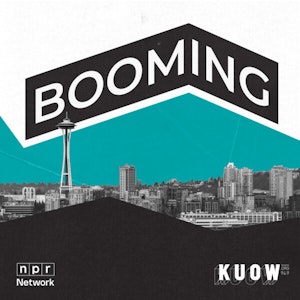Alec Cowan
Senior Podcast Producer
About
Alec Cowan is a senior podcast producer at KUOW, where he works on Booming and other podcast projects.
Alec has worn many hats at KUOW. He helped launch Soundside and brought many eclectic stories to the program, from a late-night patrol with real life superheroes to the sewing machine sounds of an artisanal sail loft. Additionally, he was previously a producer for The Record with Bill Radke and the Primed podcast.
Before joining KUOW, Alec worked in NPR's Story Lab, where he helped pilot the Louder Than a Riot podcast and assisted in producing a story on volunteerism in Iraq for Rough Translation. Originally from Grand Junction, Colorado, his roots in the Northwest begin in Eugene, where he studied English and philosophy at the University of Oregon and worked as a news reporter for NPR member station KLCC. He is likely neglecting his saxophone, growing book collection, and expanding personal project list in favor of boosting his online Xbox ranking.
He's proud to be KUOW's unofficial "boat guy."
Location: Seattle
Languages Spoken: English
Pronouns: he/him/his
Podcasts
Stories
-
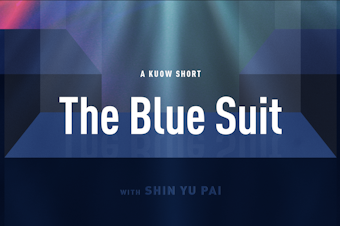
The objects that define us: Shin Yu Pai on her new podcast, 'The Blue Suit'
Objects can sometimes tell complicated stories. An old collection of papers might be destined for the recycling, or it might tell us how someone lived and what they loved most. Plant clippings might be a hobby, or they might show a connection to home, the life of a transplant.
-
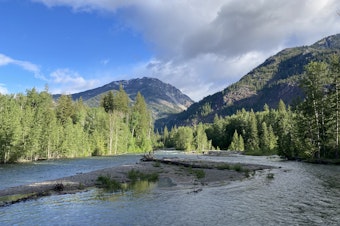
For the Methow Valley, wildfire smoke has created a 'fifth' season
The Methow Valley starts at the east end of the Cascades, at the headwaters of the Methow River. It includes the towns of Twisp and Winthrop, as well as the unincorporated community of Mazama. Residents of the valley experience the same four seasons most of us do — spring, summer, fall, and winter. But in the last ten years, a fifth season has crept into Methow Valley life: smoke season.
-
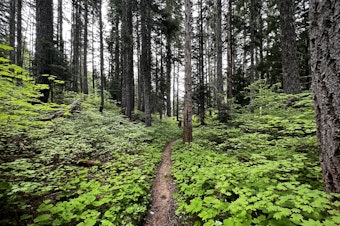
It's peak hiking season in the PNW. But who takes care of all our trails?
Washington state has more than 700 miles of hiking trails in it state parks alone, alongside hundreds more in its national parks and national forests. With so much room to roam, keeping up with trail maintenance is a daunting task, and organizations like the forest service are constantly fighting a backlog of trail maintenance. What goes into trail design and upkeep? And what happens when trails are left unattended?
-

Hear it again: Seattle's NFT Museum and tech bro villains
Soundside is on summer break, but while we're away, we're bringing you some of our best stories since we launched our show in January. Today: the best of tech.
-
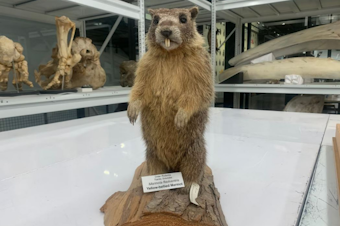
Hear it again: The fauna that define us
Washington state is no stranger to majestic and awe-inspiring wildlife. Think of the orca, the bald eagle, the mighty salmon. But hiding in the cracks of our mountains and our cities lie creatures big and small, loving and annoying. Today, Soundside looks back on our favorite animal stories and how Washington balances
-
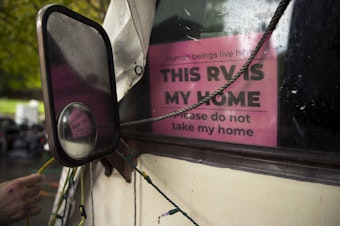
Pierce, King County announce new safe parking lot programs
Roughly a third of those experiencing homelessness in the region live in their vehicles. Two new pilot programs will test the viability of supervised safe parking lots for those living in their vehicles, with aims to build a long term solution for homelessness around RVs and other vehicles.
-
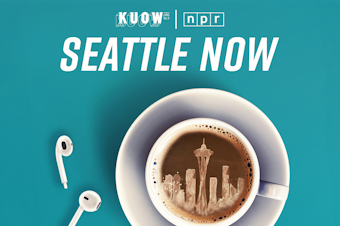
Living on the Puget Sound
Many people in Seattle are looking to find affordable housing and some are getting creative with their search. Soundside’s Alec Cowan spoke with Ian and Becky Thompson about the challenges of living on a boat around Puget Sound.
-

Exploring the complexities of our democracy
A More Perfect Union is a media project that explores the complexities of our democracy in order to help strengthen it. Through radio programs, podcasts, and oral histories, A More Perfect Union examines American democracy’s founding documents: the Constitution, the Bill of Rights, and the Declaration of Independence, through a cross-cultural lens.
-

After two years of isolation, Point Roberts is open for business — sort of
Point Roberts, Washington's famous exclave, is surrounded on three sides by water and on the last side by the Canadian border. If you want to get to "The Point" on land, you have to drive to Blaine and through British Columbia to drop back down into U.S. soil. So when the pandemic closed the northern border, the community of 850 residents was essentially cut off. Two years later, with the border the most open it's been since the pandemic began, there are slow signs of recovery -- but some residents say more needs to be done.
-

Sound it out: messages from listeners
At its core, Soundside is about connecting with our listeners and bringing you stories you care about and that impact those of us living here in the Pacific Northwest. Each week we ask for your thoughts about our stories -- where they've succeeded and where they can improve. Here's what you told us.
